Rulers
January 2008
1
Switzerland: Pascal Couchepin takes office as president. Pascal Corminboeuf becomes president of the Council of State of Fribourg, Stefan Engler president of the government of Graubünden, Elisabeth Baume-Schneider president of the government of Jura, Markus Dürr president of the government of Luzern, Ursula Hafner-Wipf president of the government of Schaffhausen, and Esther Gassler Landammann of Solothurn.
United States: Greg Ballard takes office as mayor of Indianapolis.
2
Croatia: Prime Minister Ivo Sanader accepts the resignation of Interior Minister Ivica Kirin. Ivica Buconjic becomes acting minister until Sanader forms a new government.
United States: Former Wisconsin governor (1979-83) Lee Sherman Dreyfus dies.
3
Chile: Interior Minister Belisario Velasco resigns. Felipe Harboe Bascuñán becomes acting interior minister. In a cabinet reshuffle on January 8, Edmundo Pérez Yoma is appointed interior minister.
Ecuador: Fernando Bustamante is sworn in as interior minister.
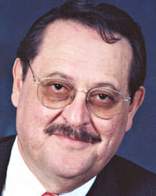
Orellana |
Honduras: Foreign Minister Milton Jiménez resigns. On January 14 Ángel Edmundo Orellana is named foreign minister and Víctor Meza interior minister, effective February 1.
India: The Nagaland government of Chief Minister Neiphiu Rio is dismissed and president's rule imposed in the state.
Venezuela: Ramón Carrizalez is designated as new vice president. On January 4 Rafael Isea is named finance minister and Ramón Rodríguez Chacín interior minister. The full government is named on January 6.
4
Fiji: In a cabinet reshuffle, Ratu Epeli Ganilau becomes defense minister.
Pakistan: Abbas Sarfraz Khan becomes chairman and Mir Ghazanfar Ali Khan chief executive of the Northern Areas under a new autonomy package. The same day, the governor of the North-West Frontier Province, Ali Mohammad Jan Orakzai, resigns and the governor of Balochistan, Owais Ahmed Ghani, is named to replace him (sworn in January 7). On January 5, Amanullah Khan Yasinzai is sworn in as acting governor of Balochistan.
Somalia: Prime Minister Nur Hassan Hussein announces the composition of his cabinet with Ali Ahmed Jama Jangali as foreign minister, Mohiyadin Muhammad Haji as defense minister, Muhammad Ali Hamoud as finance minister, and Musa Nur Amin as interior minister. The new cabinet is sworn in on January 5 and wins a confidence vote (223-5) in parliament on January 10.
5
France: The president of the Regional Council of Franche-Comté, Raymond Forni, dies. Marie-Guite Dufay becomes acting president and on January 24 is elected president with 26 votes, against 12 for Jean-François Humbert and 4 for Sophie Montel.
French Polynesia: Former governor (1969-73) and high commissioner (1986-87) Pierre Angeli dies.
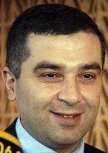
Bakradze |
Georgia: In presidential elections, Mikheil Saakashvili wins 53.5% of the vote, Levan Gachechiladze 25.7%, and Badri Patarkatsishvili 7.1%. Turnout is 56.2%. Saakashvili is inaugurated on January 20. On January 24 Davit Bakradze is nominated as new foreign minister. The new cabinet is approved by parliament on January 31.
India: Bipen Bihari Lal, former chief executive (1975) and governor (1975-80) of Sikkim, dies.
6
Bahrain: The defense minister, Sheikh Khalifa ibn Ahmad Al Khalifa, is dismissed and the state minister for defense affairs, Sheikh Mohammad ibn Abdullah Al Khalifa, is asked to act in place of the defense minister.
Cyprus: Former foreign minister (1993-97) Alekos Michailidis dies.

Tomeing | 
deBrum |
7
Association of Southeast Asian Nations: Surin Pitsuwan of Thailand takes office as secretary-general.
Marshall Islands: The parliament elects Litokwa Tomeing as president. He defeats incumbent Kessai Note by 18 votes to 15. On January 9 Tomeing names Tony deBrum as foreign minister, Jack Ading as finance minister, and Norman Matthew as internal affairs minister. Tomeing and his cabinet are sworn in on January 14.
Switzerland: Former Landammann of Aargau (1980-81, 1985-86) Hans Jörg Huber dies.
United States: Michael Nutter takes office as mayor of Philadelphia and Ralph Becker as mayor of Salt Lake City.
8

Wetangula |
Kenya: President Mwai Kibaki announces a partial cabinet with Kalonzo Musyoka as vice president and home affairs minister, Moses Wetangula as foreign minister, Yusuf Haji as defense minister, and George Saitoti as internal security minister; Amos Kimunya remains finance minister. The cabinet is sworn in on January 10.

Thaçi |
Serbia: In Kosovo, the prime minister-designate, Hashim Thaçi, announces the composition of his cabinet with Ahmet Shala as finance minister and Zenun Pajaziti as internal affairs minister. On January 9, the parliament reelects Fatmir Sejdiu as president (on the third round of voting, he receives 68 votes and his opponent Naim Maloku 39, with 11 void votes). On the same date, the parliament elects Thaçi as prime minister (85-22) and approves his cabinet; they are immediately sworn in.
10
French Guiana: Former prefect (1970-72) Jean Monfraix dies.
11
Lebanon: The vote of the parliament to choose a new president, scheduled for January 12, is postponed to January 21. On January 20 it is postponed to February 11.
12
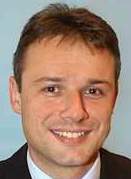
Jandrokovic |
Croatia: Parliament approves (82-62) Prime Minister Ivo Sanader's new government, including Gordan Jandrokovic as foreign minister, Branko Vukelic as defense minister, and Berislav Roncevic as interior minister; Ivan Suker remains finance minister.
Taiwan: In parliamentary elections, the Kuomintang wins 81 of 113 seats and the Democratic Progressive Party 27. Turnout is 58.5%. Premier Chang Chun-hsiung submits his resignation on January 24, but it is rejected by President Chen Shui-bian on January 28.
13
International Criminal Police Organization: Jackie Selebi resigns as president.
14
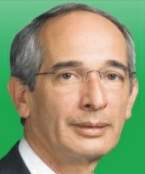
Colom | 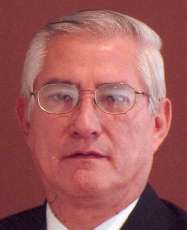
Rodas |
Guatemala: Álvaro Colom Caballeros is sworn in as president. Rafael Espada is the new vice president; Haroldo Rodas becomes foreign minister, Marco Tulio García Franco defense minister, Vinicio Gómez interior minister, and Juan Alberto Fuentes finance minister.
Indonesia: Cornelis is sworn in as governor of Kalimantan Barat.
Federated States of Micronesia: John Ehsa is inaugurated as governor of Pohnpei.
United States: Bobby Jindal takes office as governor of Louisiana.
15

Thompson | 
Sinckler |
Barbados: In parliamentary elections, the Democratic Labour Party wins 52.5% of the vote (20 of 30 seats) and the Barbados Labour Party 47.3% (10). Turnout is 56.5%. On January 16 David Thompson is sworn in as prime minister. His cabinet, sworn in January 20, includes himself as finance minister, Christopher Sinckler as foreign minister, and Freundel Stuart as home affairs minister.

Argueta |
El Salvador: Foreign Minister Francisco Laínez resigns. On January 16 Marisol Argueta de Barillas is named foreign minister.
Kyrgyzstan: Moldomusa Kongantiyev is appointed interior minister.
16
Macedonia: Former prime minister (1991-92) Nikola Kljusev dies.
Mexico: Juan Camilo Mouriño Terrazo is named to replace Francisco Ramírez Acuña as interior minister.
18

Touadéra | 
Kombo Yaya |
Central African Republic: Prime Minister Élie Doté tenders the resignation of his government, which is accepted by President François Bozizé. Faustin Archange Touadéra is appointed prime minister on January 22. His cabinet is announced on January 28, with Dieudonné Kombo Yaya as new foreign minister, other key posts remaining unchanged.
Saint-Pierre and Miquelon: Former prefect (1987-88) Jean-René Garnier dies.
19
Faeroe Islands: In parliamentary elections, The Republic wins 23.3% of the vote (8 of 33 seats), the Union Party 21% (7), the People's Party 20.1% (7), the Social Democratic Party 19.4% (6), the Centre Party 8.4% (3), and the Self-Government Party 7.2% (2). Turnout is 89.2%.
Indonesia: Ahmad Tanribali Lamo is sworn in as acting governor of Sulawesi Selatan.
Tokelau: In parliamentary elections held on January 18 and 19, only independents are elected to the 20 seats.
20
Cuba: In parliamentary elections, 614 candidates stand unopposed for the 614 seats. Turnout is 96.9%.
Serbia: In presidential elections, Tomislav Nikolic (Serbian Radical Party) wins 40% of the vote, incumbent Boris Tadic (Democratic Party) 35.4%, Velimir Ilic (New Serbia) 7.4%, Milutin Mrkonjic (Socialist Party of Serbia) 6%, and Cedomir Jovanovic (Liberal Democratic Party) 5.4%. Turnout is 61%. The first two qualify for the runoff on February 3.
22
New Caledonia: Former governor (1974-78) Gabriel Ériau dies.
23
Italy: The government of Prime Minister Romano Prodi wins a vote of confidence in the Chamber of Deputies (326-275). On January 24, however, it loses a confidence vote in the Senate (156 for, 161 against) and Prodi resigns. On January 30, President Giorgio Napolitano asks Franco Marini to try to form an interim government.
24
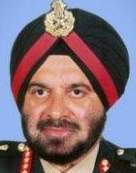
Singh |
India: Joginder Jaswant Singh is appointed governor of Arunachal Pradesh. He is sworn in on January 27.
25
Egypt: Former prime minister (1972-73) Aziz Sedki dies.
Slovakia: Defense Minister Frantisek Kasický resigns. He is replaced on January 30 by Jaroslav Baska.
26
China: Jiang Daming is elected governor of Shandong.
Italy: Salvatore Cuffaro resigns as president of Sicilia. The vice president, Lino Leanza, becomes acting president on January 29.
27
China: Li Zhanshu is elected governor of Heilongjiang.
French Polynesia: In parliamentary elections, the Our Home alliance (To Tatou Aia) wins 36.5% of the vote, the Union for Democracy alliance 32.8%, and the Popular Rally (Tahoeraa Huiraatira) 21.8%. Only 3 of the 57 seats are allocated in the first round: 2 to Te Henua Enata a Tu (member of To Tatou Aia) and 1 to Tahoeraa Huiraatira. The other 54 will be allocated in the second round scheduled for February 10. On January 31 the cabinet of President Oscar Temaru resigns.
Germany: In state elections in Hessen, the Christian Democratic Party (CDU) wins 36.8% of the vote (42 of 110 seats), the Social Democratic Party (SPD) 36.7% (42), the Free Democratic Party (FDP) 9.4% (11), the Greens 7.5% (9), and the Left 5.1% (6). Turnout is 64.3%. In Niedersachsen, the CDU wins 42.5% of the vote (68 of 152 seats), the SPD 30.3% (48), the FDP 8.2% (13), the Greens 8% (12), and the Left 7.1% (11). Turnout is 57.1%.
Indonesia: Former president (1967-98) Suharto dies.
Japan: In gubernatorial elections in Osaka, Toru Hashimoto (backed by the Liberal-Democratic Party and New Komeito) wins 54% of the vote, Sadatoshi Kumagai (backed by the Democratic Party of Japan, the Social Democratic Party, and the People's New Party) 29.4%, and Shoji Umeda (backed by the Japanese Communist Party) 15.3%.
28
South Korea: President-elect Lee Myung Bak designates Han Seung Soo as his prime minister.
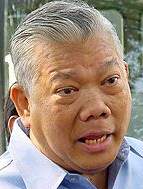
Samak |
Thailand: Parliament elects Samak Sundaravej (People Power Party) as prime minister. He receives 310 votes and Abhisit Vejjajiva (Democrat Party) 163. On January 29 the king ratifies his election.
United States: Edward T. Schafer is confirmed by the Senate and sworn in as agriculture secretary.
29
Bhutan: Elections are held to five more seats of the 25-member National Council (upper house); the remaining five members are to be nominated by the king.
China: Li Hongzhong is elected governor of Hubei.
Russia: President Vladimir Putin nominates the governor of Chita oblast, Ravil Geniatullin, to become the first governor of Zabaikalsky kray, which is to be established on March 1 by the merger of Chita oblast and Agin-Buryat autonomous okrug.
31
African Union: Jakaya Kikwete, president of Tanzania, is elected chairman.
China: Wang Sanyun is elected governor of Anhui and Luo Zhijun governor of Jiangsu.
Montenegro: Prime Minister Zeljko Sturanovic resigns.
United Arab Emirates: Sir Donald Hawley, former British political agent in the Trucial States (1958-61), dies.
















